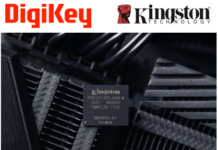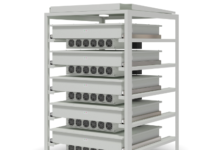
The global aerospace 3D printing market analyst says one of latest trends in the market is influence of 3D printing on aircraft interiors. 3D printing enables the fabrication of continuous units, i.e., the features are combined in one part, which brings down the material usage, extra hardware and attachment, as well as the overall weight. Some of the components that can benefit from 3D printing are air ducts, wall panels, and seat framework, which will make the production of complex geometries and organic shapes more convenient and lightweight. These advanced manufacturing processes are expedient when the carriers want to accommodate more passengers by adding seats.
Complete report on aerospace 3D printing market spread across 57 pages, analysing 5 major companies and providing 23 data exhibits now available at http://www.reportsnreports.com/reports/769787-global-aerospace-3d-printing-market-2016-2020.html .
–– ADVERTISEMENT ––
This analyst forecast the global aerospace 3D printing market to grow at a CAGR of 55.85% during the period 2016-2020. According to the aerospace 3D printing market report, one of the primary drivers in the market is miniaturization of jet engines. 3D printing not only contributes to the overall weight reduction of the aircraft but also enables miniaturization of aircraft components. This, in turn, results in fuel efficiency and a lower operating cost. When a gas turbine utilizes pulsed injection fuel instead of a constant injection, the pressure in both the compressor and combustion chamber increases. This enables the design of smaller and lighter compressor systems, which saves a considerable amount of fuel.
The aerospace components segment accounted for the maximum market share during 2015 and will continue to dominate the aerospace 3D printing market for the next few years. One of the major factors contributing to the market segment’s growth is the increasing demand for production of lightweight and smaller engine components.
The Americas accounted for the maximum market share during 2015 and will continue to dominate the aerospace 3D printing market for the next few years. One of the major reasons behind the increased adoption of 3D printing techniques in the aircraft manufacturing process is the growing adoption of additive technologies among the OEMs.
The following companies are the key players in the global aerospace 3D printing market: Airbus, Boeing, GE, Honeywell International, and Rolls-Royce. Other prominent vendors in the market are: AERIA Luxury Interiors, JBRND, Moog, MTU Aero Engines, Norsk Titanium, and Pratt & Whitney. Order a copy of Global Aerospace 3D Printing Market 2016-2020 report @ http://www.reportsnreports.com/purchase.aspx?name=769787.
Global Aerospace 3D Printing Market 2016-2020, has been prepared based on an in-depth market analysis with inputs from industry experts. This report covers the present scenario and the growth prospects of the global aerospace 3D printing market for 2016-2020. To calculate the market size, the report considers the revenue generated in the overall market from the procurement of aircraft components and subsystems that are manufactured using 3D printing technology.
Another related report is Global 3D Printing Materials Market 2016-2020, one of the key drivers will be demand driven by direct parts. Direct parts accounted for almost half of the total revenue generated by the 3D printing materials market in 2015. The number of 3D printing systems sold is increasing on the back of the demand coming from the production of direct parts. Direct parts can be produced by all the four technologies namely powder bed fusion, directed energy deposition, binder jetting, and sheet lamination. Since 2003, the direct parts segment showed tremendous growth prospects. In 2003, it accounted for only 4% of the total 3D printing revenue, reached 20% in 2010, and in 2015, the segment captured 48% of the total market. Browse complete report @ http://www.reportsnreports.com/reports/650321-global-3d-printing-materials-market-2016-2020.html
Source: http://www.marketwatch.com/


















